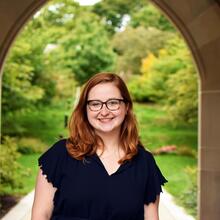There are so many reasons why the election of a new pope is different from a political election.
Over the last few weeks, this is what I have kept telling myself.
With the lists of papabili circulating, reports of critical interventions at cardinals’ assemblies and even betting odds and predictions, one could be forgiven for falling back into the patterns surrounding last November’s U.S. presidential election. The process of electing a new pope can feel as if it is the same divisive, speculative, anxiety-inducing whirlwind as any other election.
But while the cardinals involved do certainly politick, the investment from Catholics around the world should be decidedly less political. After all, we don’t actually have a say. We put our trust in the Holy Spirit and in the electors and pray for a worthy, good, holy successor. Our posturing and predicting ultimately amounts to…not very much.
And considering the tenor of electoral politics in the United States and in other nations, the less the conclave is like a political election, the better. This doesn’t mean that candidates’ positions on important issues facing the church don’t matter—to me or to the electors. It doesn’t mean that those positions cannot have political implications. But because of the ways the election process diverges from what we are used to in other parts of our culture, there are opportunities for the grace of new vision and new possibilities.
One part of the process that we have to look forward to has come up again and again in my mind: The identity of the new pope will be a surprise.
The world won’t know who the electors have chosen as the next pope until the moment that man’s names (both his given name and his chosen papal name) are announced and he walks out onto the central balcony of St. Peter’s Basilica. At that time, he’ll have the chance to make a first impression.
When else do we get an opportunity like this, to take someone at this level of leadership at face value? In the case of political election results, we get an immediate notification on our phones when a victor is named, and that victor is someone whose campaign or career we’ve likely been following for months or even years. In all likelihood, we’ve already made up our minds about that person—and often rightly so. If they make a victory speech at some later time, it feels almost impossible that their words will open minds or hearts.
Most Catholics (and non-Catholics) watching the announcement of the new pope will react to his words and mannerisms without knowing anything at all about his background. His name and face will be one that most of us don’t recognize. To learn about him we’ll have to wait for analysis from experts and journalists—and they’ll learn who’s been chosen at the same time as everybody else. It’s the kind of throwback to another era that might make a new leader easier to accept. When much ink has already been spilled about the importance (and even the possibility) of a unity candidate, the balcony surprise gives over a billion Catholics the chance to react together, to the same thing at the same time.
When researching how the announcement works, I discovered something I didn’t know before. The text that is read before the new pope emerges begins as follows:
“Annuntio vobis gaudium magnum; habemus Papam.”
(“I announce to you a great joy: We have a pope.”)
The text parallels the passage in the Gospel of Luke when angels announce Jesus’ birth to the shepherds, bringing them “good tidings of great joy.” No pope is Jesus; no pope is God. But as it did when Christ was born, good news, great joy, comes in the form of a human being.
We ask God for a worthy successor to Pope Francis and to St. Peter, and we ask God for open hearts to receive him. May we see the human being before us as a great joy.







